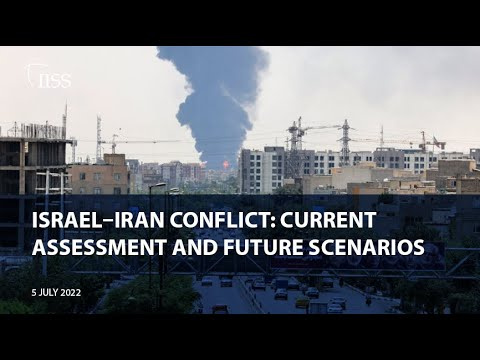Green Finance: Sustainable Investments in Fragile Environments
Event recording:
Environmentally sensitive regions such as the Amazon and other tropical forests are vital for global biodiversity and climate mitigation but often experience instability amid a combination of socio-economic security and governance challenges. Directing funding to these contexts, therefore, presents unique challenges and risks for investors, with environmental crime and related illegal activities and social conflicts around natural resources being among the many factors they need to navigate. Investors must address these complexities while ensuring their activities do not exacerbate existing tensions or lead to social unrest.
This event in collaboration with adelphi and part of London Climate Action Week, will bring together the London-based and international investment community along with government and civil-society stakeholders to explore the critical role of finance in supporting and preserving environmentally sensitive regions while also fostering economic development, reducing conflict over resources, navigating criminal dynamics and promoting sustainable livelihoods. It will discuss the ecological, social and economic significance of investing in environmentally sensitive regions and the potential for positive impacts on global climate stability and biodiversity preservation; examine the specific risks investors face when financing projects in these fragile contexts, including political instability, security risks and regulatory challenges; and present strategies and frameworks that can help mitigate these risks, such as partnerships with local communities, adherence to sustainable-investment principles and leveraging technology for better monitoring and management.
Speakers and Chairs
- Mohammed Zia is currently a Climate Security Adviser with HMG’s Integrated Security Fund. In this role, he is setting up programming that aims to tackle some of the key climate-security challenges facing us today. He has a mix of policy, programming and technical experience. He spent nearly three years in Ethiopia working on regional conflicts and has previously worked on the Afghanistan and Syria crises within HMG. Mohammed holds a BA in Natural Sciences and an MSci in Earth Sciences from the University of Cambridge.
- Daniel Litvin is the Founder and CEO of Resource Resolutions, a new venture dedicated to the resolution of conflict and societal division over natural resources. Daniel previously founded Critical Resource, a leading advisory firm on sustainability and geopolitical risks facing resource assets, which he sold in 2020 to ERM, the world’s largest sustainability consulting firm. He remains a Senior Advisor to ERM and is also Visiting Senior Fellow at the London School of Economic’s (LSE) Grantham Institute on Climate Change. Previously, Daniel was an advisor to McKinsey & Company and Rio Tinto leadership, a senior fellow at Chatham House in energy geopolitics and environment correspondent at The Economist. He is author of Empires of Profit: Commerce, Conquest and Corporate Responsibility.
- James Hooton is Managing Director of GFI Europe, leading on European strategy and building relationships with key public and private-sector stakeholders. Under his leadership, the GFI has expanded internationally. James is a founding member of the Sustainable Energy Finance Association, an advisory member of the Science Based Targets initiative Expert Advisory Group on Buildings, and a member of the core project team for the Partnership for Carbon Accounting Financials. He joined the GFI from his role as Finance and Ops Director for a charity and previously spent 16 years at Goldman Sachs in Europe and Asia managing teams across a range of financial products from commodities to equity derivatives and vanilla cash equity.
- Dr Sandra Guzmán Luna is an ecofeminist and international expert in low-carbon development and climate finance. She founded and directs GFLAC and previously served as Director General of Climate Change Policies at Mexico’s Secretariat of Environment and Natural Resources. Sandra holds a PhD from the University of York and has studied at Oxford, LSE, Latin American Faculty of Social Sciences (FLACSO), and National Autonomous University of Mexico (UNAM). She is a Homeward Bound alumna and returned to Antarctica in 2025 as a member of the academic team. Her work on women’s climate leadership has received global recognition, including awards from Marie Claire, Chevening and Forbes.
- Dr Irene Mia is the Editor of the Armed Conflict Survey, one of the annual IISS flagship publications. She is also Senior Fellow for Latin America, leading the IISS research programme on Latin American security, governance and geo-economics, as well as directing the Conflict, Security and Development research programme. Before joining the IISS she worked at the Economist Group and the World Economic Forum, writing and speaking extensively on issues related to national competitiveness, international trade, development, geopolitics and the Global South, as well as advising governments and the corporate sectors on related issues. Irene holds an MA in Latin American Studies from the Institute for Latin American Studies, University of London, and a PhD in International Economic and Trade Law from Bocconi University. She is a member of the advisory board of the Global South Unit at The London Business School of Economics (LSE) and was a member of the board of trustees of Canning House.
- Dr Beatrice Mosellois Senior Advisor on climate diplomacy and security at adelphi. Her work focuses on researching and advising on climate- and conflict-sensitive approaches that deliver on both resilience and peace. Prior to joining adelphi, Beatrice worked as sustainability and climate-change advisor to businesses in the extractive sector and as a Research Fellow at the Overseas Development Institute in London. Beatrice has a PhD in International Studies from the Geneva Graduate Institute and has been a Visiting Research Fellow at the United Nations University Centre for Policy Research, the London School of Economics and Political Science and the American University of Central Asia in Bishkek.










